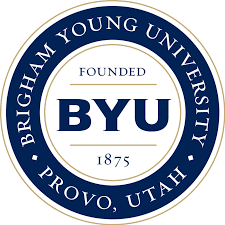Location
Mission of the University
The mission of Brigham Young University — founded, supported, and guided by The Church of Jesus Christ of Latter-day Saints — is to assist individuals in their quest for perfection and eternal life. That assistance should provide a period of intensive learning in a stimulating setting where a commitment to excellence is expected and the full realization of human potential is pursued.
Aims of a BYU Education
BYU seeks to develop students of faith, intellect, and character who have the skills and the desire to continue learning and to serve others throughout their lives. These are the common aims of all education at BYU. Both those who teach in the classroom and those who direct activities outside the classroom are responsible for contributing to this complete educational vision. A BYU education should be:
- Spiritually Strengthening
- Intellectually Enlarging
- Character Building
- Leading to Lifelong Learning and Service
Foundation Documents
From its inception more than a century ago, the goal of Brigham Young University has been to offer "a new kind of education" for Zion, one based on precepts "revealed by the Lord," as Karl G. Maeser once remarked. Today, BYU is widely recognized for its deep commitments to inspired religious values and rigorous intellectual learning.
Members:
Resources
Displaying 1 - 2 of 2Using Detection Dogs and Rspf Models to Assess Habitat Suitability for Bears in Greater Yellowstone
In the northern U.S. Rockies, including the Greater Yellowstone Ecosystem (GYE), connectivity is a concern because large carnivores have difficulties dispersing successfully between protected areas. One area of high conservation value because of its importance for connecting the GYE to wilderness areas of central Idaho is the Centennial Mountains and surrounding valleys (2500 km²) along the IdahoâMontana border just west of Yellowstone National Park.
Habitat Selection by the Pygmy Rabbit (Brachylagus idahoensis) in Northeastern Utah
The pygmy rabbit (Brachylagus idahoensis), the world's smallest rabbit, has a limited distribution due to its year round dependence on sagebrush (Artemisia tridentata) for food and shelter. Due to accelerating habitat loss from fragmentation, development, and fire, understanding the pygmy rabbit's ecology has become increasingly important. In 2010, we initiated a study of the status of a pygmy rabbit population and its habitat requirements on U.S. Bureau of Land Management (BLM) land near Woodruff in northeastern Utah.


